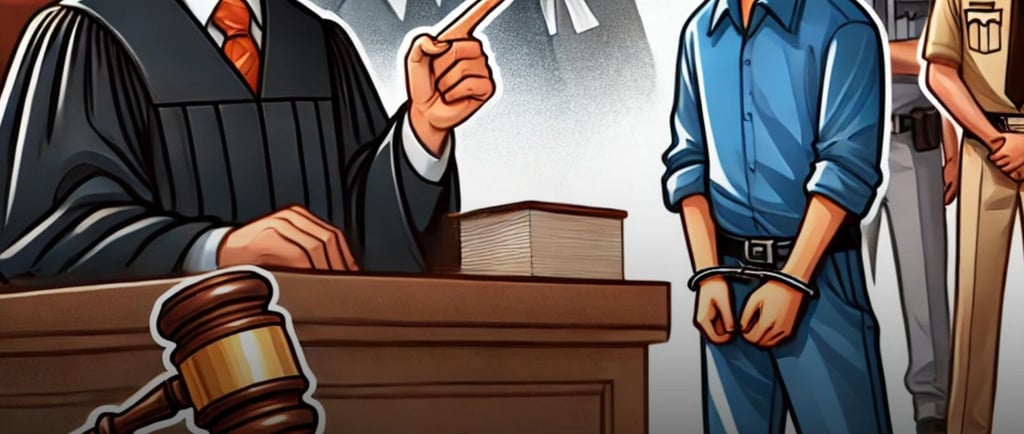The Supreme Court rejects bail for a juvenile involved in four similar cases.
The Supreme Court denied bail to a juvenile, emphasizing that he was a repeat offender and could not avoid legal consequences due to his age. The bench, led by Justices JB Pardiwala and R Mahadevan, noted that the juvenile was involved in four similar cases. They expressed frustration, calling him "incorrigible" and stating that he should not be treated as a juvenile given the seriousness of his crimes. Despite being in custody for over a year, the court refused to grant bail, acknowledging that the juvenile could face a maximum sentence of three years if convicted. It also highlighted the lack of witness appearances, urging the juvenile court to expedite the trial and complete it within four months.
2/28/20251 min read


The Supreme Court on Monday took a firm stance legal accountability. The bench, consisting of Justices JB Pardiwala and R Mahadevan, highlighted that the juvenile had been involved in four similar criminal cases, signaling a pattern of repeat offenses. The court's frustration was evident, with the justices remarking that the minor was “incorrigible,” stressing that he could not continue to evade justice simply because of his juvenile status. The court further emphasized that, given the nature of his crimes, he should not be treated as a juvenile, particularly when his offenses were grave in nature.
The court noted that although the juvenile had been in custody for over a year and eight months, it was not persuaded to exercise its discretion in favor of granting bail. While acknowledging that the maximum punishment for the crimes, if the juvenile were found guilty, was three years, the court pointed out that his past offenses, coupled with the current charges, painted a picture of a repeat offender who could not be excused merely due to his age.
Furthermore, the court drew attention to the delays in the legal process, noting that despite charges being framed against the juvenile, witnesses had failed to appear in court. This delay in securing witness testimony was seen as a potential infringement on the juvenile’s right to a speedy trial. In response, the justices directed the juvenile court to take action to ensure the prosecution's witnesses appear as needed, asserting that it was the responsibility of the juvenile court’s presiding officer to address these issues.
In light of these concerns, the Supreme Court not only denied bail but also pushed for the expeditious completion of the trial. The court ordered that the trial be concluded within four months, urging the juvenile court to conduct daily hearings if necessary to ensure that the case moves forward without further delay. This decision reflects the court's firm stance on ensuring justice is served promptly, even in cases involving juveniles, particularly when the accused has demonstrated a pattern of repeat offenses.
